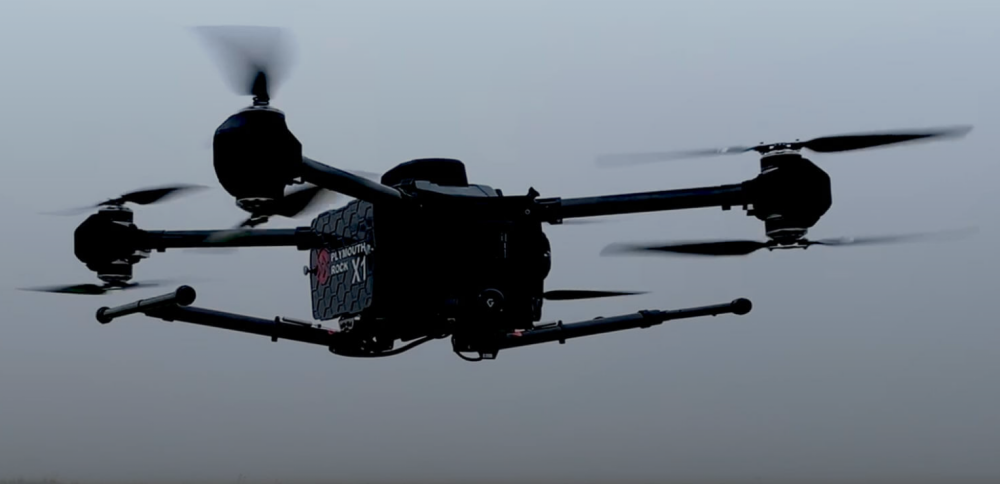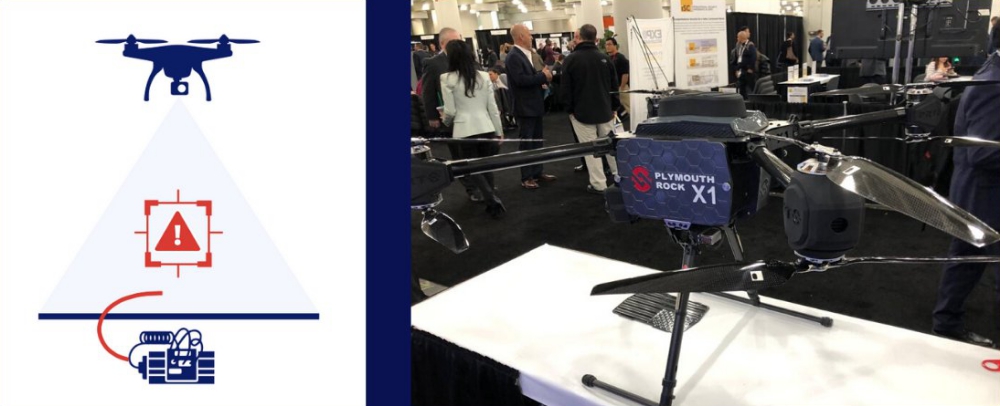 Plymouth Rock Technologies Inc
Plymouth Rock Technologies Inc
. has announced that its X1 platform will begin initial production with integrated 5G command and control modules as standard. Airbus Industries first showcased the 5G UAS technology in 2019 as a proof of concept.
In many tests, cellular networks have proven to be capable of serving drones in the low-altitude airspace, a perfect fit since drones fly rather low and cell coverage above buildings and trees is exceptionally good. With most of the ground clutter below, performance over 4G and 5G delivers an effective and efficient connectivity for drones while maintaining the performance of mobile devices on the ground.
The three major methods for connecting drones by means of 5G cellular data are Unmanned Aircraft Systems Traffic Management (UTM), Beyond Visual Line of Sight (BVLOS) flights, and Sensor Data Transmission (SDTX).
UTM, the system under definition by the FAA in unison with the European U-Space, will deliver a globally standardized technology, allowing these cellular networks to be integrated with drone traffic management systems to enhance the safety and security of commercial drone operations. Current global regulations are usually restricted to low-altitude operations (below 120m or 400ft) and within the visual line of sight of a human pilot who is in permanent control of the drone.
With BVLOS, drone applications are capable of flying beyond the visual line of sight or when it flies autonomously, and still be in direct control of the pilot. SDTX is a critical application and is important when data is transmitted to ground stations beyond the remote-control station of the pilot. This could be either live broadcasting of the drone’s camera or saving time for data processing. Since it is often a large amount of data and AI processing, a data connection with a large bandwidth is required, which will be 5G-network coverage.
“Our mission centric focus on the X1 system has been evident in the capability and performance metrics demonstrated already,” stated Carl Cagliarini, Chief Strategy Officer of PRT. “Almost all non-military drone remote control systems are based on radio connections similar to Wi-Fi frequencies with a limited range, usually under 2-3 miles. The X1 has both short-range capabilities, along with an optional military-grade system that enables BVLOS up to 60 miles. The addition of operational 5G capabilities using cellular networks will deliver command and control connections over unlimited distances provided that the drone has cellular network coverage around it. This also enables the X1 to be controlled, deliver and receive information in real time from and to anywhere in the world.
“The key advantage is that this addition elevates the operational capability of the PRT unmanned aviation platform as an unrivalled place holder for the state of the art in the UAS industry. Further, the addition of 5G adds another layer of safety, should a pilot utilizing the X1 become incapacitated or the manual control device be damaged,” added Dana Wheeler, President & CEO of PRT.
Source: Press Release
[See also : SDS to Provide Plymouth Rock UAVs to Australian Government – Ed.]

